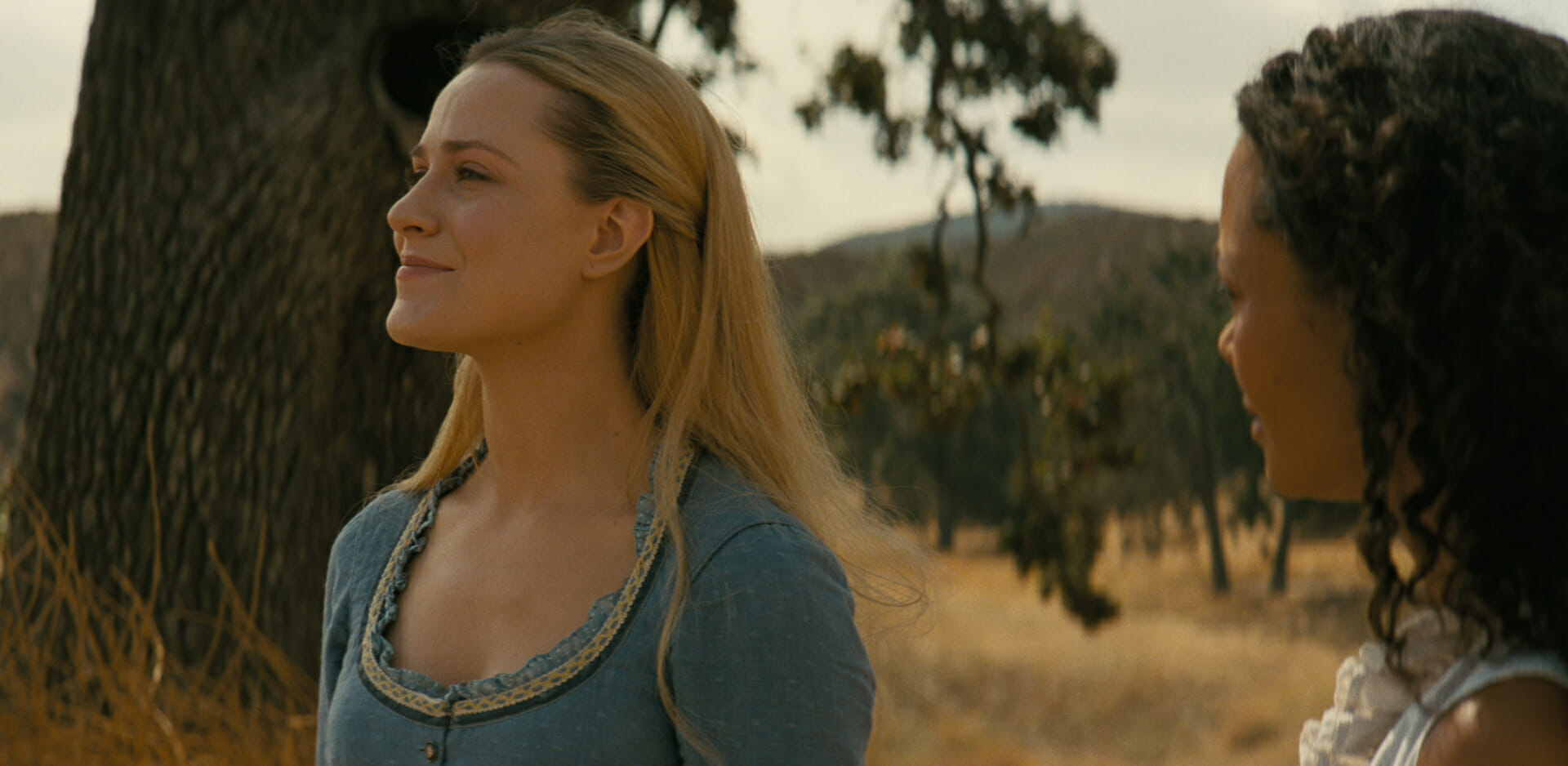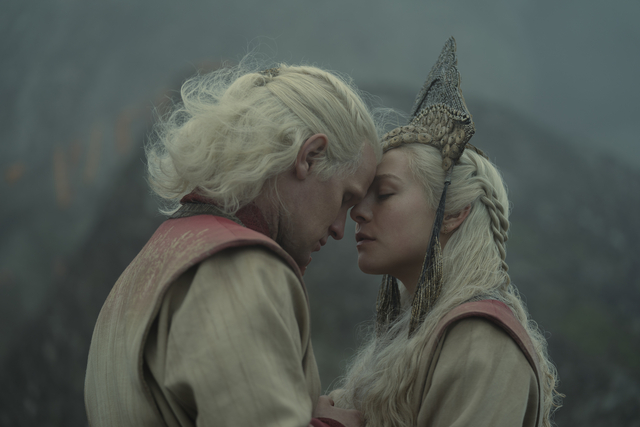
House of the Dragon | How Targaryens ruled before Game of Thrones
Seasons
Runtime
172 years before the birth of Daenerys Targaryen, the invincible House of the Dragon ruled the Seven Kingdoms. They had plenty of adult dragons and nobody could have faced their power. The only thing that could destroy their dynasty was the dynasty itself; and when it happened, historians gave that war the name “Dance of the Dragons”.
Produced by HBO, House of the Dragon is the prequel of Game of Thrones, based on George R.R. Martin‘s book Fire & Blood. After the first show of the A Song of Ice and Fire franchise, HBO tried many times to equal its success, but only its prequel seems to be close to the purpose. The first episode aired on August 21, 2022, and over 10 million viewers watched it on the first day, the biggest in HBO’s history.
The show received a great audience and critics’ approval, despite some critics of ellipsis and its dark cinematography. It gained also several nominations, winning three BAFTA, the Golden Globe Award for Best Television Series, and an Emmy Award for its costumes. The cast was also generally praised for the high level interpretation.
The swansong of the House of the Dragon
King Viserys Targaryen (Paddy Considine) is a quiet, gentle, and honest man: a good ruler for times of peace. He has no male heir yet, only a rebel dragon rider daughter, Rhaenyra (Milly Alcock/Emma D’Arcy). Though, he’s confident his wife Aemma (Sian Brooke) will give birth to a healthy boy. But something goes wrong, and despite the Maesters’ attempts, both mother and child die during childbirth.
The only possible male heir is the king’s brother, Prince Daemon (Matt Smith). He’s a great warrior and conductor but has the impulsive blood of the dragon. So, Viserys opts for Raenyra, in spite of being a woman with a stronger nature than him. Raenyra thinks then she’ll be queen, but suddenly the king marries again with the young Alicent (Emily Carey/Olivia Cooke), the Hand of the King‘s (Rhys Ifans) daughter, who soon gives him two male heirs. Their birth silently reopens the game to the Iron Throne: brother against brother, blood against blood. Until the end of the powerful dynasty.
A family blood feud riding a dragon
Compared to Game of Thrones, in House of the Dragon fantasy elements acquire much more space since the very beginning. In the first, dragons, but also giants, White Walkers, and wights belong to a legendary past, and they’re considered fairytales. When Daenerys’ eggs hatch, the miracle event marks the real entry into an imaginary world. Whereas in the prequel dragons are part of everyday life. The House’s members receive an egg when they’re born, and ride them as if they were horses. For the whole population is also normal to see them fly over the city to the Dragonpit.
Yet, in House of the Dragon imaginary creature are far more than a fantasy elements, incarnating the main theme. The fantastics nearly just a context: dragons are the distinctive symbol of House Targaryen, representing their temperance and, above all, their power. They allowed the family to ascent to the throne (which is also symbol of supreme power), and granted their dynasty to reign. But it’s exactly the power (and the weight it carries with) the main crux of the narration, similar to House of Cards and Game of Thrones itself: the focus isn’t on characters and what happens to them (or even if they die). The real protagonist is the fight for power.
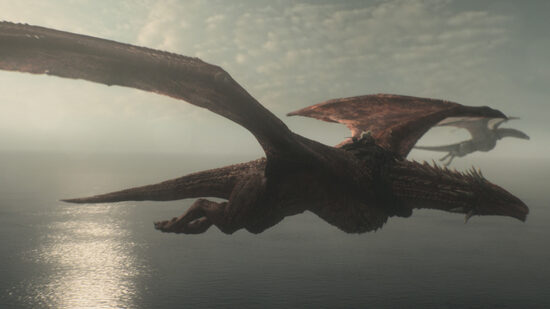
The fight for the right to inherit the crown, which started with missives and marriage pacts, soon evolves into a more and more bloody feud. The story reveals a royal family saga: something like The Crown in a fantastic world. But it’s also a narration about manipulation, betrayal, and lust; themes that immediately recall Shakespearian tragedies such as Hamlet, or Richard III. Human lacks remain so in the spotlight, making a historical fantasy extremely actual and realistic.
From historical essay to epic adventure
The novel Fire & Blood is written as if it were a historical essay, with a neutral and cold style. The events are reconstructed after the war, and the narrator knows how the story ends. While the TV show results in an epic adventure that develops following the story day after day. As a result, even though the audience also already knows the war’s results, the involvement into events increases. So, the screenwriters based on the literary source and add dialogues, actions, and scenes rich in pathos.
The book covers a long timeframe, crossed by various years during which nothing remarkable happens. As a consequence, the show includes also time jumps and ellipses, to focus on the main events. For this reason, a recast was necessary for some characters: for example, Rhaenyra and Alicent are only girls in the first episodes, but face the war as grown-up women.
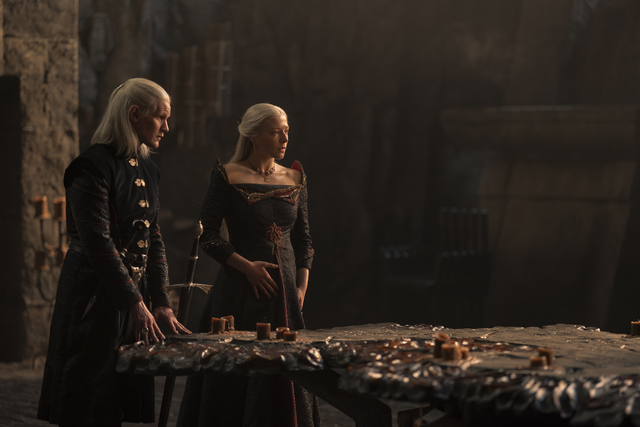
Another element that puts a distance with Game of Thrones is the predominance of indoor scenes. This is a pretty common feature for shows such as How I Met Your Mother or Friends, that set all their seasons in very few indoor locations. However, this is not so ordinary in adventure stories, which are usually richer in action and movements. The epic battlefields and immense lands leave space for private rooms, castle halls, and council tables. Therefore, some secondary happenings are reconstructed or just partially shown. This choice reflects the novel’s style, underlining the single perspective, and the fact that also in the literary source some facts are only referred.
The abundance of long and brilliant dialogues compensate for this light lack of action. This is also a common point with comedies such as Curb Your Enthusiasm, but creates a link also with comedies like The Marvelous Mrs. Maisel. Likewise Mindhunter investigate serial killers’ crimes without fights or pursuits, but creates a tense atmosphere only through jail visits and conversation, so House of the Dragon prefers brilliant verbal challenges to physical ones. The show builds the conflict by captivating conversations, balancing official discourses with intimate confessions.
Different rides to the same throne
When Game of Thrones debuted, back in 2011, it marked a turning point in TV show history. HBO was already famous for some brave productions, but nothing had ever reached its level. The death of one of the most-loved characters at the end of season one was a clear message: expect the unexpected. Nobody’s safe. No one could even imagine a similar amount of violent deaths, explicit (and incestuous) sex, and a total lack of affection for “good” characters.
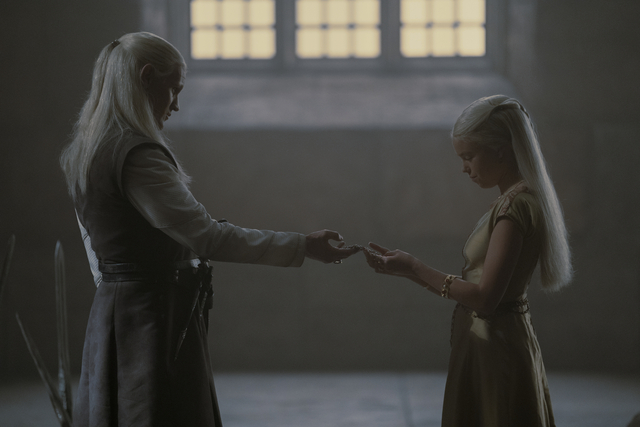
The prequel acts as a breaking point in the television landscape, too. Rawness and brutality are heightened as the main purpose were upsetting the audience. The first episode (with the shocking C-section) sets a standard that grows together with the storyline development. Yet, no ruthless scene appears exaggerated, nor unjustified, and therefore annoying. At the same time it chooses to abandon part of the path traced by Game of Thrones. If compared to another contemporary prequel such as The Rings of Power, which aims to recreate the same exact aesthetic and narrative style of The Lord of the Rings, House of the Dragon chooses to be a self-standing one. Despite sharing with its predecessor some themes, it adopts totally new narrative strategies and tones.
The shows also share the main question: who will sit on the Iron Throne? Though, in Game of Thrones the battle is between different houses: they face many internal fight, but end up united to a common goal. While in the prequel none compete with the house of Fire & Blood. Even the blood bonds dissipate, in front of the perspective of losing the power. Therefore, no ploy is too cruel, and no revenge exaggerated in the family feud. Nobody could ever think to defeat a Targaryen, except for someone who shares his same blood and fire.
Tag
Buy a ☕ for Hypercritic







